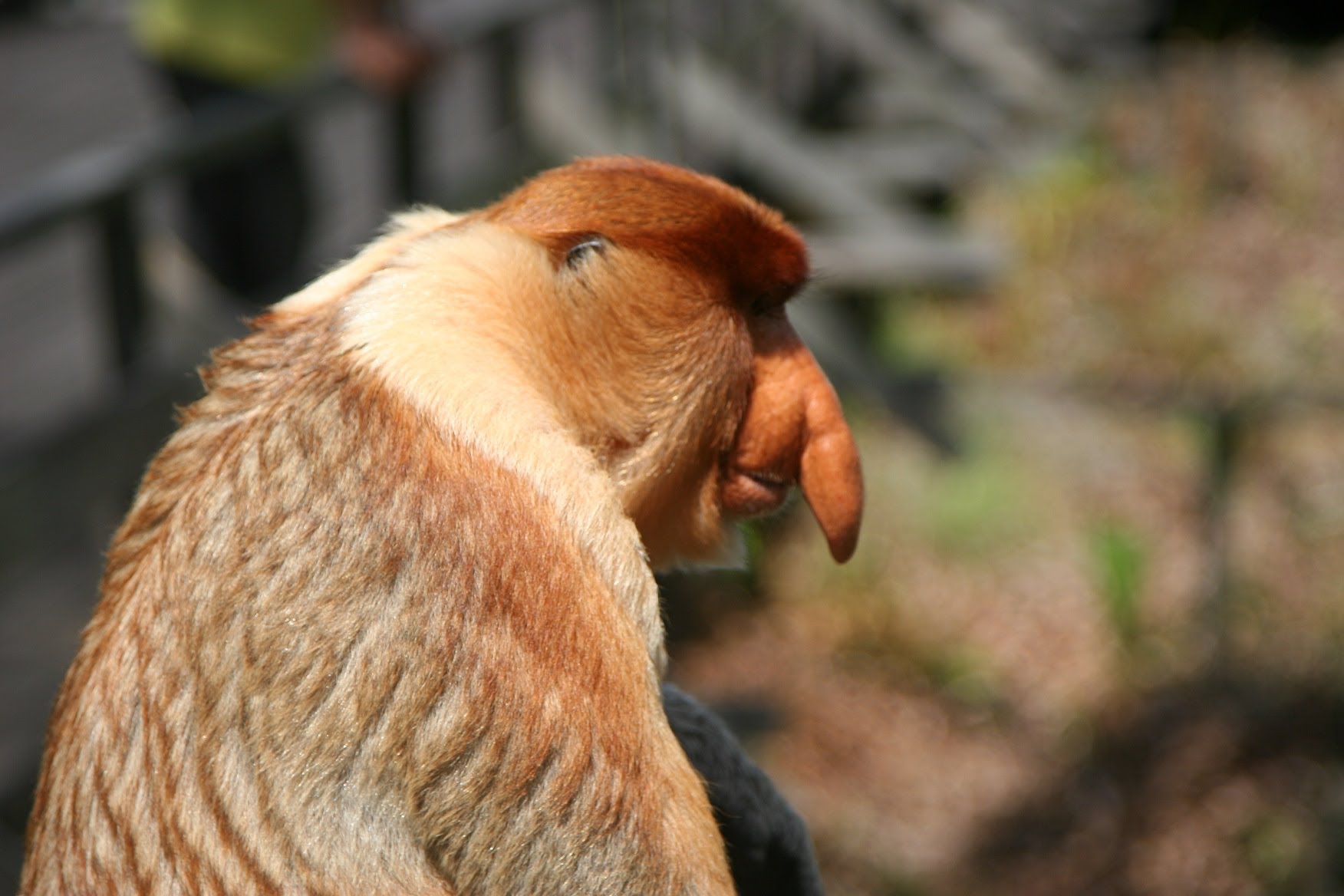
Big Nosed Monkey Wallpapers High Quality Download Free
Length: Up to 1.2 meters (3.9 feet) Weight. Around 26 to 50 kilograms (57 to 110 pounds) Nose Specification. Distinctively long, flexible, and tubular nose. Animals with long noses, like the saiga antelope, native to the grasslands of Central Asia, is instantly recognizable for their remarkably long and slender nose.

Schnozzola Rare proboscis monkey. Proboscis monkey, Interesting animals, Animals beautiful
Big noses aren't just for humans - many animals have big noses too! Some animals have noses that are so big and unique that they've become famous worldwide. From elephants to tapirs to proboscis monkeys, biggest nose animals come in all shapes and sizes and play essential roles in their ecosystems. This blog post will examine ten amazing.
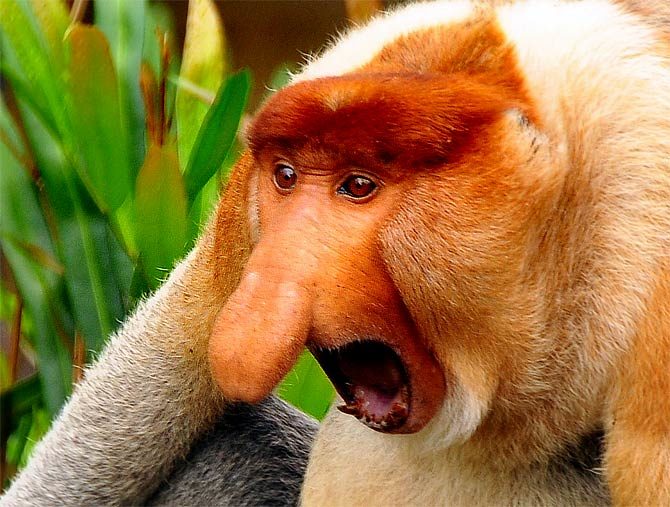
Proboscis monkey longnosed monkey
Curiosity may have killed the cat, but when it comes to animals with big noses, it only ignites your fascination. Prepare to embark on a journey into the intriguing world of these extraordinary creatures. From elephants using their long trunks to aardvarks hunting for ants, these animals have evolved unique snouts that serve vital purposes.
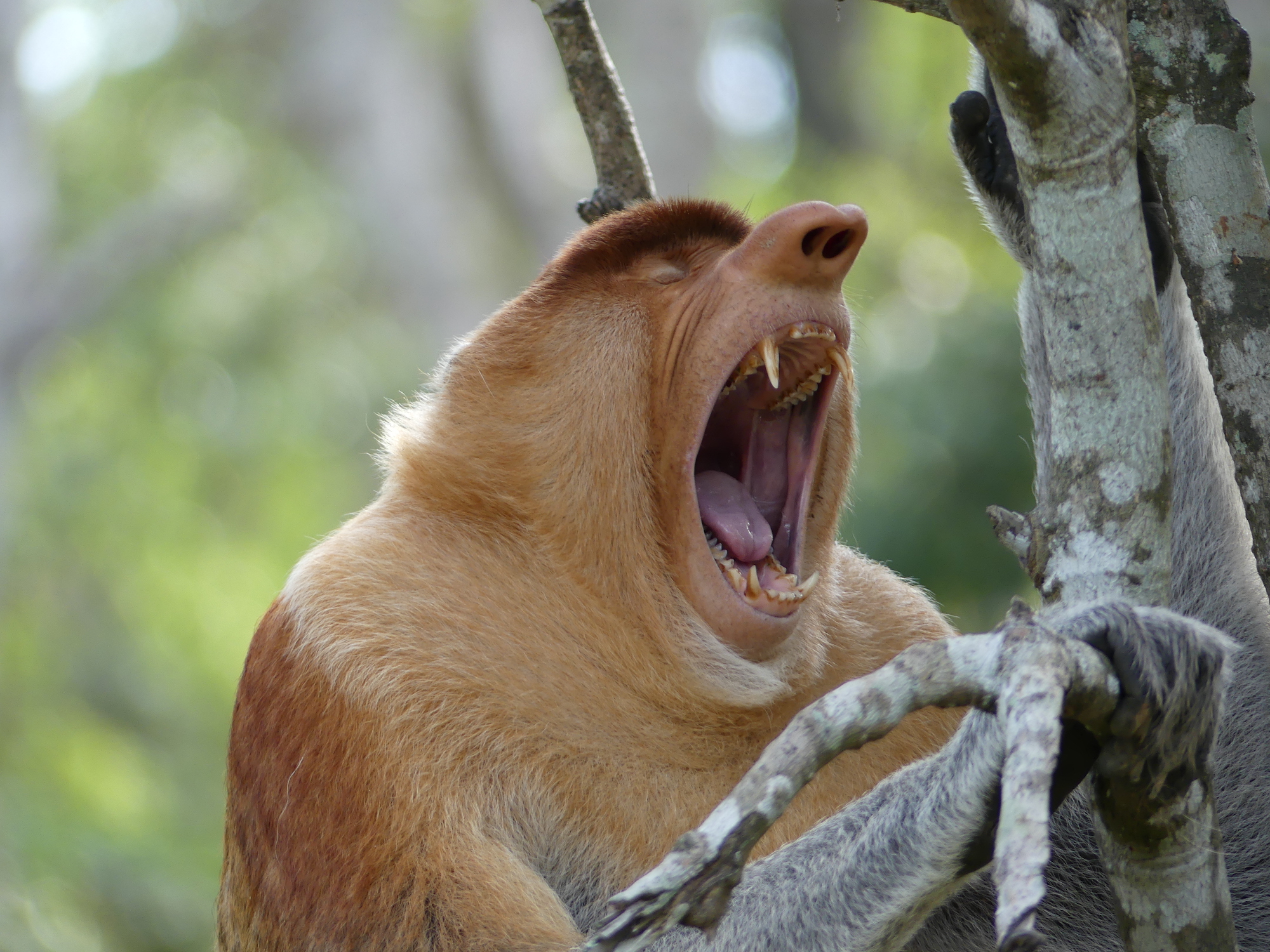
Big Nosed Monkey Wallpapers High Quality Download Free
15 Interesting Animals With Big Noses. 1. Elephants. Scientific Name: Loxodonta africana. We have to start with elephants. The most common animal with a big nose, elephants are very intelligent creatures that also happen to have a nose (their trunk) that can reach up to 7 feet long.

Big Nose Big noses, Proboscis monkey, Nose
From animals to big noses to creatures with a powerful sense of smell, some animals have noses that are beyond belief! Every one of these creatures has a nose that helps it stand out! 1. Mandrill. Young male mandrill. These Old World monkeys have some of the most colorful noses in the animal kingdom! Male mandrills typically have bright red.

15 Animals With Big Noses (Pictures and Fun Facts) Wildlife Informer
15 Animals With Big Noses And How They Use Them. 1. Proboscis monkey. Also called the Nosy monkey, the proboscis monkey has the longest nose of all primates. The enormous and bulbous noses of Proboscis monkeys can grow as long as 17 centimeters and are much more expressed in males than in females.
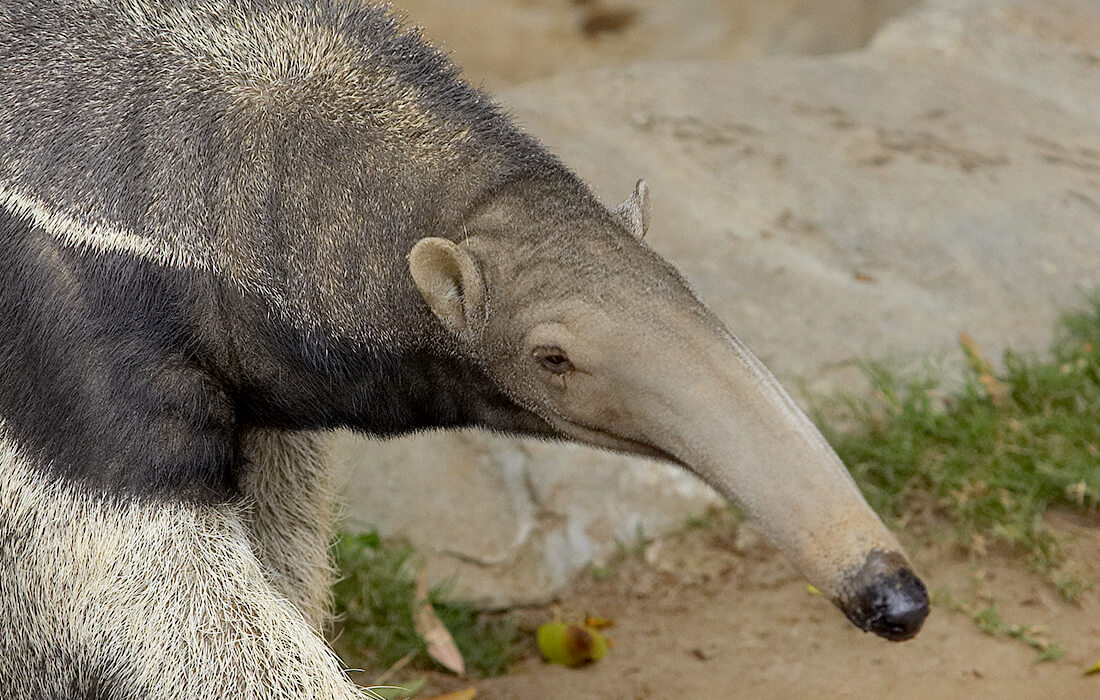
Giant Anteater San Diego Zoo Animals & Plants
Here is a list of animals with big noses. Table Of Contents show. 1. Elephant Shrew. Elephant Shrew. This is a very small mammal that is only found in Africa. It has incredible eyesight and hearing capabilities.
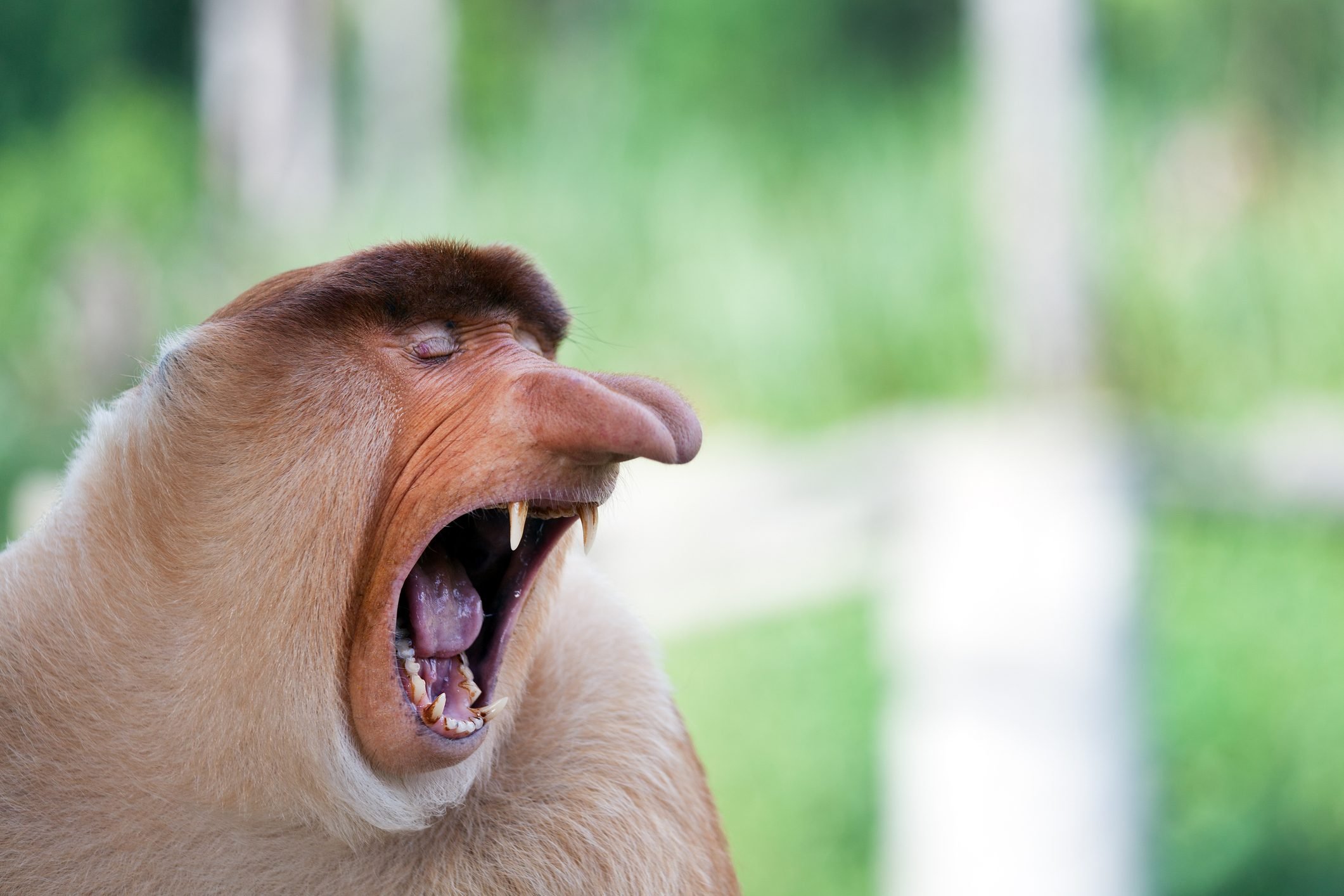
22 Funny Monkey Pictures to Make You Laugh Reader's Digest
15 Animals With Big Noses 1. Long-beaked Echidna. Long-beaked echidnas have elongated snouts that they use, together with their forelimbs, for foraging and digging into the ground for earthworms. This method is called a head press, and it's a probing technique in which they increase the pressure into wet soil to make a depression, then obtain.
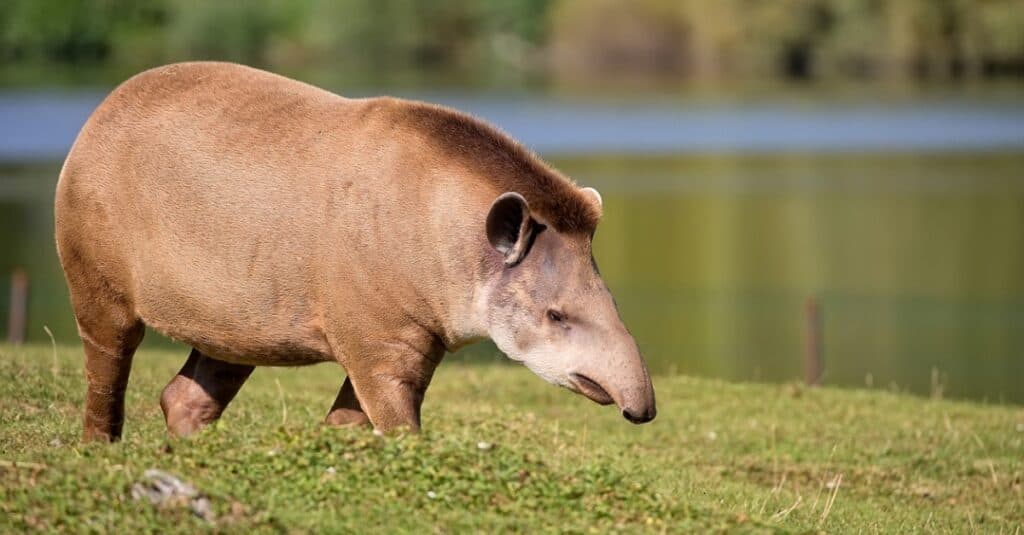
7 Animals With Big Noses (And Why They Have Them) (2022)
The next animal with a big nose is the third largest land mammal in the world after the rhinos and the elephant is the hippopotamus. The hippopotamus is also known as simply hippos, common hippopotamus, river hippopotamus is a mammal adapted for both water and terrestrial life found in Uganda, Tanzania, Kenya, Ethiopia, Somalia, Sudan, Gambia, and Africa.
:max_bytes(150000):strip_icc()/GettyImages-1147998751-459e8e4dbb144b9585d1cd39910ce769.jpg)
9 Animals With Shockingly Strange Noses
Animals with big noses. 1. Proboscis monkey. The probosci's monkey, sometimes known as the Nosy monkey, has the longest nose of any primate and is also one of the ugly animals in the world. Proboscis monkeys can be found in the jungles of Borneo, Indonesia. Their primary habitat consists of wetlands, rivers, and mangrove plants.
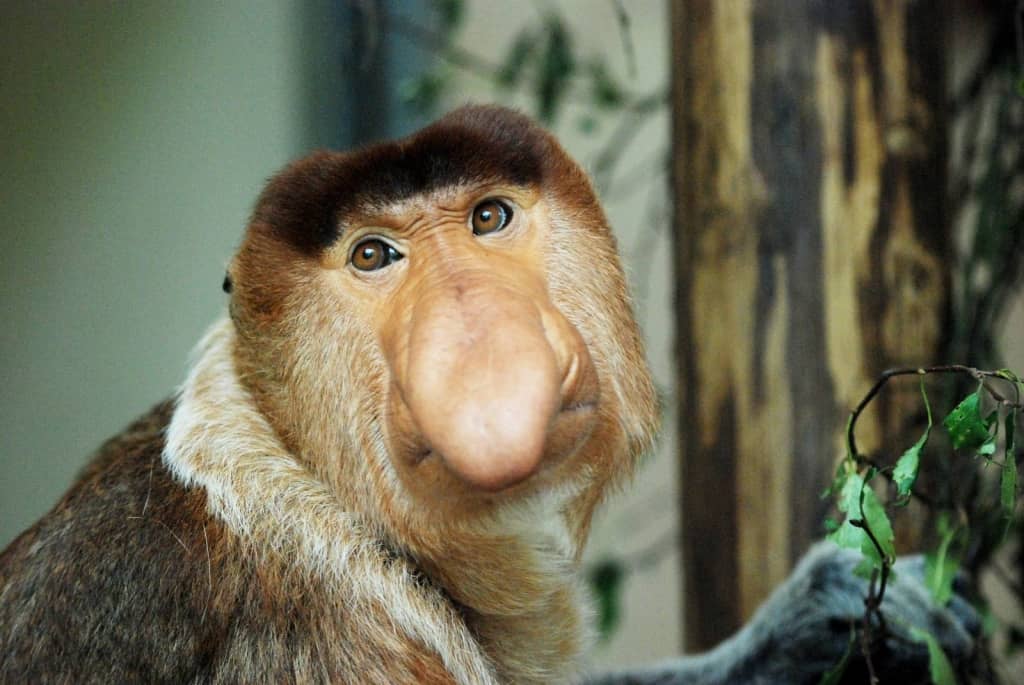
These monkeys are easily identifiable due to their big noses. It’s not entirely known why these
The aardvark is probably one of the most well-known animals with big and long noses. This animal has an extremely sensitive nose that can detect odors even when they are very far away. They live in the savannas of Africa and eat ants, termites, and other insects. Aardvarks can weigh up to 150 pounds and are about four feet long.
During summer migrations, the Saiga's large nose helps to filter out dust kicked up by the herd
From the awe-inspiring elephants with their iconic trunks to the peculiar Pinocchio frogs, this delightful exploration showcases fifteen unique creatures that possess big noses. Each animal's prominent schnoz serves a specific purpose, whether it be for communication, locating nourishment, or defending against potential predators.

Pin on Animals
1. Aardvark. The aardvark is a mammal from Africa that's known for digging tunnels in the ground. It has a long nose, similar to a pig's, that it uses to smell and find ants and termites, its main food. This unique nose also helps it breathe while it's burrowing, and its strong legs and sharp claws make digging easier.

Large nose monkey ( Proboscis monkey ) YouTube
The proboscis monkey's 6-inch long nose helps attract females. To the females, a long nose means a large body, which will mean better protection. The elephant shrew's long, skinny nose gives it the upper hand in scouting out insects and invertebrates to feast upon. A strong sense of smell isn't the only super strength of this tiny mammal.

Big nose Bella Dog Nose, Dog Wallpaper, Cute Creatures, Close Up Photos, Memes, Dachshund
While many animals use their sense of smell to navigate in dark environments, none do so in quite the same way as the star-nosed mole. Its face is covered by a writhing mass of tentacles. The 22 tentacles that surround its nose contain roughly 100,000 nerve endings — more than five times that of the human hand..
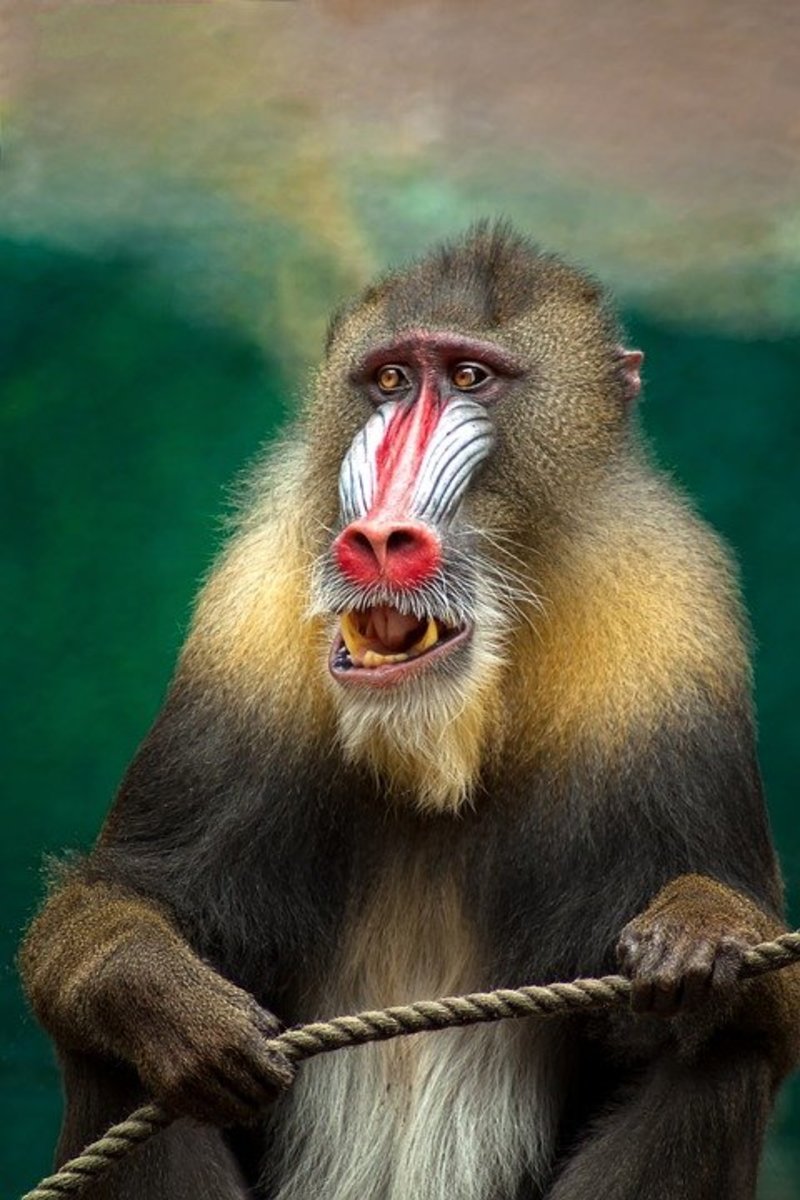
Top 50 Animals with Long Noses HubPages
If you're looking for an animal with a big nose, look no further than the elephant seal. These marine mammals are named for their large size and protruding snouts that resemble an elephant's trunk. The male's nose, which is a long, flexible nose that hangs down over the mouth. This unique feature is used to produce a loud, low-frequency.